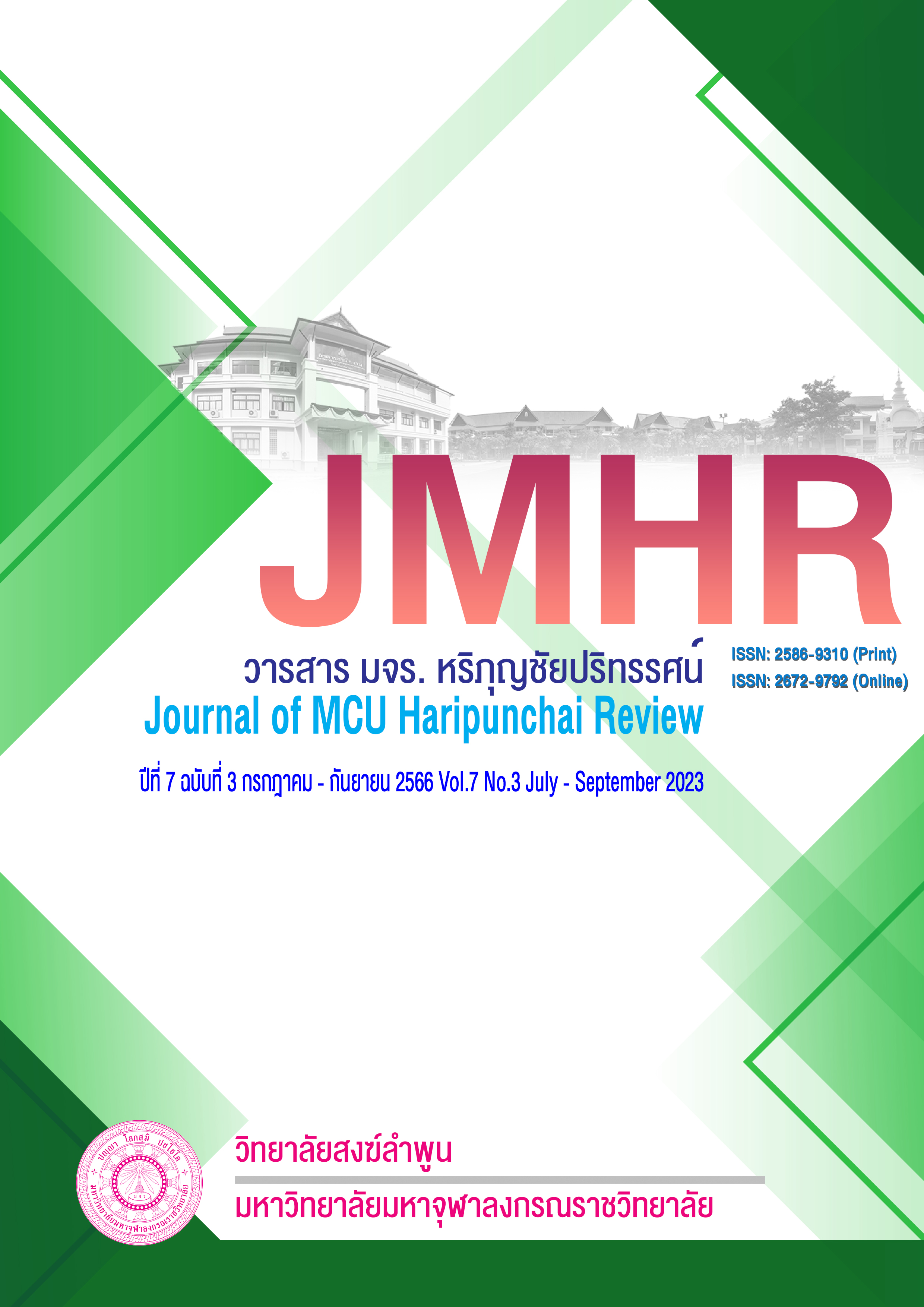Development of Parental Participation Model Using PLC Innovation for Preschool Children Development at Wisdom Tree Home, Muang District, Chiang Mai Province
Main Article Content
Abstract
The purposes of this research were 1) to explore the administrative conditions of parental participation of Bilingual Child Development Center at Wisdom Tree Home, 2) to make the parental participation model using PLC innovation, 3) examine the parental participation model using PLC innovation, and 4) to evaluate the effectiveness of parental participation model using PLC innovation for early childhood development in Bilingual Child Development Center at Wisdom Tree Home, Muaeng Dijstrict, Chiang Mai province and research and development model (R&D). The populations were the parents and 12 early childhood children and 16 key informants. The tools were assessment forms and content analysis with SWOT Analysis, and statistics used were frequency, mean and standard deviation.
The result showed that:
1) Parents gave importance and participation with school. The SWOT analysis found that there was a system for assessing child development, but the development was not very good. Some parents still lacked knowledge and confidence. The parents were aware of the child’s development
2) The developed model consists of the goals of the model, the elements of the model and the drive of the model towards the goal
3) The results of experiment model showed that driving the model must take into account C: Context was the economic and social context, P: Plan was to raise awareness of development, D: Do was to follow plans and activities, E: Evaluation was to participate evaluation, B : Benefits was to realize the benefits, and S : Share our feedback was to share what has been learned.
4) The results of efficiency evaluation model after the experiment, it was found that most of the model use scores were different. The mean was included at the moderate level with statistical significance at the .01 level. As for assessing the satisfaction of the stakeholders, overall, the satisfaction towards the model was at the high level.
Article Details

This work is licensed under a Creative Commons Attribution-NonCommercial-NoDerivatives 4.0 International License.
References
ชาลี ภักดี พศิน แตงจวง พระครูวิทิตศาสนาทร พระมหาวีรศักดิ์สุรเมธี พระมหาสกุล มหาวีโร
และ ฉัตรชัย ศิริกุลพันธ์. (2563). แนวทางในการพัฒนาการจัดการศึกษาเพื่อสนองต่อความต้องการของชุมชนในสถานศึกษา สังกัดสำนักงานคณะกรรมการการศึกษาขั้นพื้นฐาน ภาคเหนือตอนบน. วารสารศึกษาศาสตร์มหาวิทยาลัยกรุงเทพธนบุรี, 8(1), 82-94.
ประภาพรรณ รักเลี้ยง. (2557). หลักทฤษฎีและปฏิบัติการบริหารการศึกษา. พิษณุโลก: บัณฑิตวิทยาลัย มหาวิทยาลัยพิษณุโลก.
ประสาร พรหมณา. (2553). การบริหารแบบมีส่วนร่วม. [ออนไลน์]. แหล่งข้อมูล : http://trang.nfe.go.th /alltis16/UserFiles/Pdf/wijaiman.pdf. [วันที่ 10 กรกฎาคม 2565].
เรวณี ชัยเชวรัตน์. (2559). ชุมชนแห่งการเรียนรู้ทางวิชาชีพ (Professional Learning Community: PLC). สาขาวิชาหลักสูตรและการสอน คณะคุรุศาสตร์ จุฬาลงกรณ์มหาวิทยาลัย.
วิชัย วงษ์ใหญ่ และ มารุต พัฒผล. (2562). การพัฒนาคุณภาพการจัดการเรียนรู้ตามแนวคิดชุมชนแห่งการเรียนรู้ ทางวิชาชีพ. กรุงเทพฯ: มหาวิทยาลัยศรีนครินทรวิโรฒ.
วิจารณ์ พานิช. (2555). วิถีสร้างการเรียนรู้เพื่อศิษย์ในศตวรรษที่ 21. กรุงเทพฯ: ตถาตาพลับลิเคชั่น
สำนักงานคณะกรรมการการศึกษาแห่งชาติ. (2543). เด็กปฐมวัยของสหรัฐอเมริกา; รายงานการพัฒนาและการเรียนรู้. กรุงเทพฯ: บริษัท พริกหวาน กราฟฟิก จำกัด.
สำนักงานคณะกรรมการการศึกษาขั้นพื้นฐาน. (2563). แนวทางการส่งเสริมพัฒนาการเด็กวัย 3–6 ปี สำหรับพ่อ แม่ ผู้ปกครอง. [ออนไลน์]. แหล่งข้อมูล : http://academic.obec.go.th /images/document/1593157950_d_1.pdf. [ วันที่ 10 กรกฎาคม 2565].
obec.go.th/images/ document/1593157950_d_1.pdf.
Cohen, John M. and Uphoff, Norman T. (1980). Participation's Place in Rural Development: Seeking Clarity Through Specificity. World Development, 8(3), 213-235, DOI:10.1016/0305-750X(80)90011-X.


